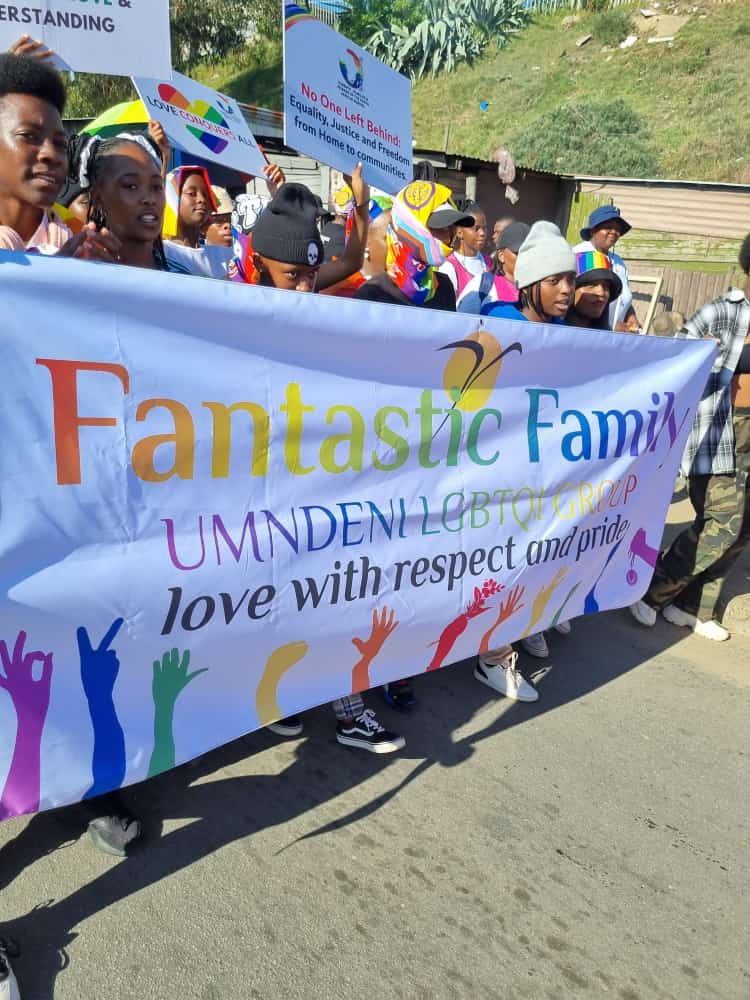Written by: Mogau Makitla
Thirty four years after the Gay & Lesbian Organization of Witwatersrand (GLOW) took to the streets of Johannesburg to host the first Pride march in South Africa, pride continues to roam the streets with community-driven celebrations, events and safe spaces across the country.
This landmark event was a steppingstone towards highlighting the challenges of the queer community in South Africa and ensuring that they, too, would be addressed in the new legal framework as South Africa embraced the new dawn of democracy. This pioneering Constitution was one of the first in the world to criminalise discrimination on the basis of sexual orientation. Since then, many laws have been put into place to protect the rights of LGBTQI+ people, including the Prevention and Combating of Hate Crimes Bill which was signed in May 2024.
Despite a very progressive constitution, there is a disjoint between law on paper and the lived realities of LGBTQI+ people on the ground. Discrimination against the queer community is still rife.
In late 2023, a shopping centre in Gqerberha was under the spotlightfor a sign that said “gays, lesbians, bisexuals and transgenders” were not allowed at their premises as they were considered “evil”. Earlier in 2024, Diego Jacobs was stabbed to death by a person in his community who had been hurtling homophobic slurs and threatening Diego prior to his gruesome murder.
These, and a long history of abuses, highlights the need for more legal protection for LGBTQI+ persons, as well as the need for immediate reformative work that debunks myths about the queer community and working towards fostering safe and inclusive societies.
Over the past decade, Forum for the Empowerment of Women (FEW) has been doing incredible work towards increasing LGBTQI+ visibility in communities. Their community Pride trainings aim to capacitate community members to host Pride events in their own communities as many people had felt left behind from mainstream Pride events such as Pretoria, Johannesburg and Cape Town Pride. These events, the organisation says, are not accessible to those living in townships and rural areas.
The training focuses on themes such as the history and purpose of Pride, the coordination of hosting an event that abides by municipality guidelines, and what safety measures are needed. Through these trainings, many prides have been born in communities such as Vaal Mahikeng, Ekurhuleni and Mopani. The hard work that activists have put in over decades has now culminated in the emergence of these safe spaces where queer people can exist.

Ekurhuleni Pride, 2013. Iranti.
Gugu Mandla, Iranti’s Documentation Officer, highlights the importance of community Prides through their own experiences. “There is a high rate of hate crimes in the townships. A lot of lesbian and gay people are murdered here. It did not make sense for us to go to march in Sandton, when we are we exist in the townships. We needed people in the townships to know that we are here, that we exist alongside them and that we are their neighbours”.
FEW’s director, Jade Madingwane, reiterates the need to create these spaces in order to ensure that LGBTQI+ people have safe spaces to exist – especially with the high rate of murders that plague their communities.

Soweto Pride, 2023. Gugu Mandla.
This year, the community of Knysna hosted their first ever Eyethu Kasi Pride on the 25th of May. This was after community leader, Nolitha Boyce, noticed the need for a safe space for LGBTQI+ persons in their community, and was later connected with FEW which provided training on hosting a community Pride.

Knysna Eyethu Kasi Pride, 2024. Julie Ann Hoofmann
The spirit of the first Pride march in Johannesburg remains with us. Community Prides serve as a beacon of hope, from city centers to remote townships, it is clear that queer South Africans are taking ownership of their narratives. Through celebration and activism, they are paving the way for a brighter future where LGBTQI+ people can not only exist but thrive.
